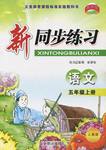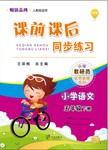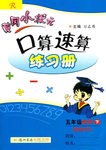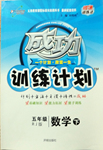题目内容
________ foreign guests come to our school for a visit every year and we exchange ________ information about education.
A.A large number of; plenty of
B.A great deal of; a lot of
C.A plenty of; a great deal of
D.A great many of; lots of
解析:
|
a number of后接可数名词,a great deal of后接不可数名词,plenty of, a lot of和lots of可接可数或不可数名词。 |

 教学练新同步练习系列答案
教学练新同步练习系列答案 课前课后同步练习系列答案
课前课后同步练习系列答案 课堂小作业系列答案
课堂小作业系列答案 黄冈小状元口算速算练习册系列答案
黄冈小状元口算速算练习册系列答案 成功训练计划系列答案
成功训练计划系列答案GU Zhaodi, 60, had taken water for granted for years. In fact, no one in the beautiful lake city of Wuxi, Jiangsu Province had bothered to spare a thought on water.
But all that changed dramatically overnight last month when taps in the city ran dry. Due to a blue-green algae(藻类) outbreak in Taihu Lake, China’s third largest freshwater lake and the source of drinking water for 4 million Wuxi residents(居民),water from the city’s taps became dark and smelly.
“I can’t believe there is no water for drinking, let alone cooking and washing,”said Gu.
The lake was blanketed with the algae, giving off a strong smell of rotting meat. A stone thrown into it took a long time to sink. Experts said that algae usually boom because of hot water and rich chemicals like phosphor(磷)in the water.
“High temperature and a lack of rain in the past few months helped the growth of algae,”said Zhang Lijun, an official from the State Environment Protection Administration. “However, pollution from human activity should be most blamed for the disaster.”
Taihu Lake is surrounded by many small factories, whichsprang up in the 1980s.Inthe 1990s,many foreign-funded(外资的) companies joined in. The industries prospered(繁荣),Wuxi has grown into one of the wealthiest cities in East China.
But that came at the price of pollution. The lake was treated like a waste dump(垃圾堆),with factories emptying industrial waste and untreated sewage(污水)into it.
Although, after the government's effort, life in the city has gone back to normal, the one-week crisis(危机)rang a bell for the government and local people.“It's time to rebuild the beauty of nature, or our lives will be at risk,”said Gu.
“A safe environment comes first. Economic growth will be nothing without fresh water to drink and clean air to breathe.” said China Daily.
【小题1】The following can not help the blue green algae grow______
| A.high water temperature | B.rich chemicals in the water |
| C.a lack of rain | D.plentiful water and sunshine |
| A.The one-week disaster has made the local people realize the importance of building a beautiful city. |
| B.It is human activity rather than the algae that is to blame for the water pollution. |
| C.Only when the environment is safe and friendly can man live a better and healthier life. |
| D.Environment should be taken into consideration first if a city plans to develop its economic. |
| A.is the third largest lake in China. |
| B.is surrounded by many foreign-funded factories and companies. |
| C.used to be a waste dump. |
| D.suffered from industrial waste,untreated sewage and algae. |
| A.develop quickly | B.produce goods quickly |
| C.come to life | D.grow up |
GU Zhaodi, 60, had taken water for granted for years. In fact, no one in the beautiful lake city of Wuxi, Jiangsu Province had bothered to spare a thought on water.
But all that changed dramatically overnight last month when taps in the city ran dry. Due to a blue-green algae(藻类) outbreak in Taihu Lake, China’s third largest freshwater lake and the source of drinking water for 4 million Wuxi residents(居民), water from the city’s taps became dark and smelly.
“I can’t believe there is no water for drinking, let alone cooking and washing,”said Gu.
The lake was blanketed with the algae, giving off a strong smell of rotting meat. A stone thrown into it took a long time to sink. Experts said that algae usually boom because of hot water and rich chemicals like phosphor(磷)in the water.
“High temperature and a lack of rain in the past few months helped the growth of algae,”said Zhang Lijun, an official from the State Environment Protection Administration. “However, pollution from human activity should be most blamed for the disaster.”
Taihu Lake is surrounded by many small factories, whichsprang up in the 1980s.Inthe 1990s,many foreign-funded(外资的) companies joined in. The industries prospered(繁荣),Wuxi has grown into one of the wealthiest cities in East China.
But that came at the price of pollution. The lake was treated like a waste dump(垃圾堆),with factories emptying industrial waste and untreated sewage(污水)into it.
Although, after the government's effort, life in the city has gone back to normal, the one-week crisis(危机)rang a bell for the government and local people.“It's time to rebuild the beauty of nature, or our lives will be at risk,”said Gu.
“A safe environment comes first. Economic growth will be nothing without fresh water to drink and clean air to breathe.” said China Daily.
【小题1】The following can help the blue green algae grow______
| A.high water temperature |
| B.rich chemicals in the water |
| C.a lack of rain |
| D.plentiful water and sunshine |
| A.The one-week disaster has made the local people realize the importance of building a beautiful city. |
| B.It is human activity rather than the algae that is to blame for the water pollution. |
| C.Only when the environment is safe and friendly can man live a better and healthier life. |
| D.Environment should be taken into consideration first if a city plans to develop its economic. |
| A.Who is to blame, man or algae? |
| B.Water turned off |
| C.Water pollution troubled Wuxi |
| D.Algae threatened Taihu Lake |
| A.is the third largest lake in China. |
| B.is surrounded by many foreign-funded factories and companies. |
| C.used to be a waste dump. |
| D.suffered from industrial waste,untreated sewage and algae. |
| A.develop quickly | B.produce goods quickly |
| C.come to life | D.grow up |
根据下列句子各句句意和空白之后的汉语提示词,在句子右边的横线上写出空缺处相应单词的正确形式,每空只写一词。
1.Zhou Gu was _____________(采访)by the local newspaper.
2.They quarreled once, but they are quite _____________(友好) now.
3.Annie Sullivan was a lively young woman with ___________(耐心)and imagination.
4.I think reading English newspaper is a good way of _________(改进)your English.
5.What Tom did during the sports meet made all of us _______________(失望).
6.None of us ______________(意识到)the danger we were in.
7.I’ll have several travels on business in ____________(八月).
8.It’s _____________(必要的) for us to master a foreign language nowadays.
9.In England, _____________(距离) is measured in miles, not in kilometres.
10.We couldn’t hear him ____________ (清晰地)so we asked him to speak louder.